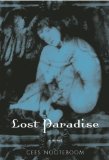Summary | Excerpt | Reading Guide | Reviews | Beyond the book | Read-Alikes | Genres & Themes | Author Bio

A Novel
by Alexis WrightAlexis Wright's Carpentaria opens the window into the experiences and perspectives of Aboriginal people in the Northern Territory in Australia. Full of larger-than-life characters and prose that channels the rhythms of Aboriginal speech, Wright's book is anything but mainstream.
The plot marches determinedly through various vignettes and character portraits, but the beauty of the novel lies in its persuasive ability to create a multi-dimensional depiction of a unique world. Though there is an exposition, climax, and conclusion, this novel is more a quilt of intertwining moments, rather than a linear story. Reading Carpentaria is similar to listening to an Aboriginal storyteller weave her tale, and as her arms fly up to illustrate the sea or the movement of fruit bats, so too does the story. Wright is not afraid to spend a few pages describing a small moment or image, and we are reminded of a slower world, the type of place where taking the time to see something is half the enjoyment. The land, animals and the sea play a major role in this story, echoing the ties to the natural world that the Aboriginal people have traditionally fostered.
Elements of Aboriginal myth and religion play a pivotal role in Carpentaria. Here, the seaweed jungles under Normal Phantom's small boat are not merely made of seaweed, but are also a harbinger of the great sea goddess, a woman mighty in her power to lure men to the graveyard depths of the ocean. The movement of the wind and sea has meaning to the Aboriginal people living in Desperance, and these things become significant to us because we see them through their eyes. These enchanting elements of magical realism lend a lyrical, fable-like quality to the story.
Though the descriptions are beautiful and important to the development of the story, the characters are the crowning elements of the novel. Carpentaria's characters dance across the page, and with the playful narrator providing insight into individual character's experiences in one instance and the heart of the town in others, we are taken into the throbbing soul of this disenfranchised society.
Normal Phantom and his family take center stage. Norm and his headstrong wife, Angel Day, live an odd existence that is at once endearing and saddening. When Norm is not fishing or communing with the likes of Elias Smith, a man believed to be a prophet (though Elias has other notions), he is stuffing dead fish with horsehair and painting them to look alive. Angel Day is content to spend most of her time in the town's rubbish heap, collecting treasures - including, much to the consternation of a few white people, a statue of the Virgin Mary, a prize Angel Day paints and displays in her house.
The constant tension between the Aboriginal and White Australians in Desperance plays out in various ways, as the Aboriginal people attempt to negotiate their space and rights. Though there are some lighthearted moments, the relationship between the two communities is a violent one. Wright's insight provides a real understanding of how Aboriginals view this relationship, and this view is perhaps instructive about how race relations in Australia can be improved. However, this large, far-reaching novel pushes past the confines of its specific social context. Wright's lyrical prose, bright characters, and mythical elements create a great patchwork of an original novel - one that will enchant a variety of readers.
Alexis Wright and the Roots of Carpentaria
The subject for Carpentaria no doubt came from Wright's own experience as a land-rights activist and a member of the Waanyi people, an Aboriginal group who live in the southern Gulf of Carpentaria (map). Wright grew up in Cloncurry, Queensland after her father, a white cattleman, died when she was five. In addition to her fiction, Wright has published two nonfiction works about the Aboriginal experience in Australia, Plains of Promise and Grog's War.
It took her nearly two years to develop the ideas for Carpentaria and nearly six years to write the novel. It was rejected by all the major publishing houses in Australia, but was ultimately published by the independent press Giramondo in 2006. In June 2007, it won the Miles Franklin Award over Peter Cary's Theft: A Love Story. It has since become a bestseller in Australia and has won critical-acclaim around the world.
![]() This review was originally published in The BookBrowse Review in May 2009, and has been updated for the
June 2010 edition.
Click here to go to this issue.
This review was originally published in The BookBrowse Review in May 2009, and has been updated for the
June 2010 edition.
Click here to go to this issue.

If you liked Carpentaria, try these:

by Rabih Alameddine
Published 2009
An inventive, exuberant novel that takes us from the shimmering dunes of ancient Egypt to the war-torn streets of twenty-first-century Lebanon.

by Cees Nooteboom
Published 2008
From acclaimed Dutch novelist Cees Nooteboom comes a haunting tale of angels, art, and modern love.




Books are the carriers of civilization
Click Here to find out who said this, as well as discovering other famous literary quotes!
Your guide toexceptional books
BookBrowse seeks out and recommends the best in contemporary fiction and nonfiction—books that not only engage and entertain but also deepen our understanding of ourselves and the world around us.